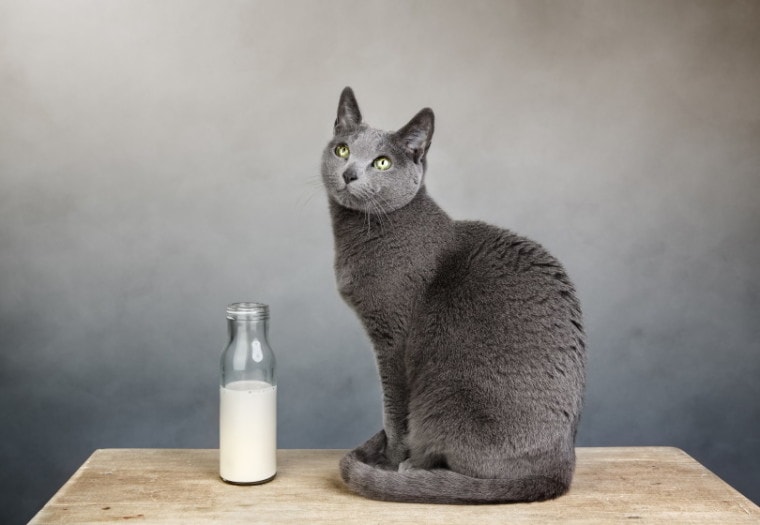
Almond milk has become a popular alternative to cow’s milk in recent times, and it’s no wonder! It’s perfect for anyone with lactose intolerance and is also a low-calorie and healthy alternative to the usual milk.
But what about cats? We know cow’s milk isn’t good for cats, but can they drink almond milk? Almond milk can actually be okay for cats, but only in moderation.
We look closer at the benefits and drawbacks of almond milk for cats and examine the right amount to give them.
A Little History of Almond Milk
You might be surprised to learn that while almond milk has become quite popular within the past several years, it’s been around since the 1200s when it was commonly used in Baghdad. Almonds were easy to find, and the milk lasts longer than animal milk in the heat, so it was a favorite alternative.
While it eventually became popular in the 1400s in Europe, it stayed under the radar until around 2008, when it started production in North America, and it is now highly sought after today.
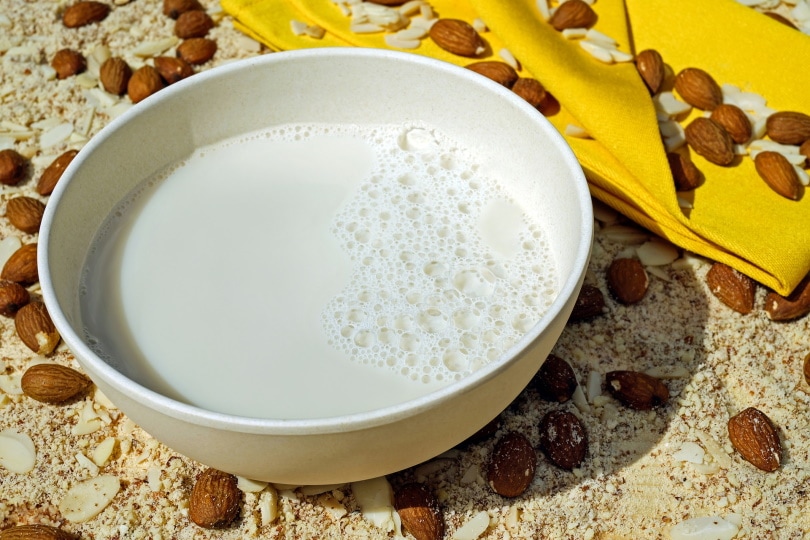
What Exactly Is Almond Milk?
We all know almonds aren’t physically capable of producing milk, so how exactly do we get almond milk?
The process typically starts by washing and then soaking the almonds for around 12 hours. They are then peeled and ground up, usually in a colloid mill, with a large amount of water (usually a ratio of 10 parts of water to every one part of almonds).
The mixture is then filtered through a sieve. You’re left with a milky substance (additives and preservatives can also be added at this point) that will be sterilized and bottled. It can also easily be made at home using similar techniques (using a blender rather than a mill).
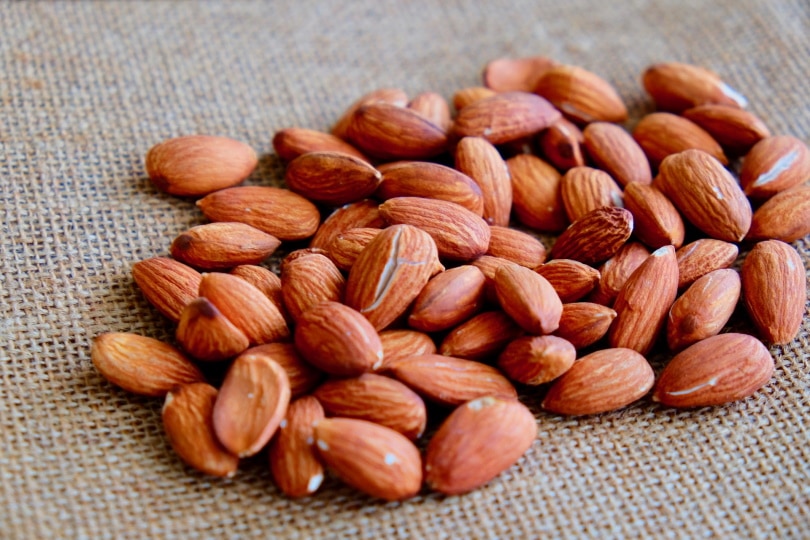
Cats and Milk
For as long as we’ve had cats, there’s been a long-standing myth that cats always drink a saucer of milk. However, most cats have an intolerance to lactose, just like many humans. So, when a cat drinks cow’s milk, there’s more than a good chance that stomach upset, bloating, and diarrhea will result.
Many cats love drinking milk but can’t digest one of its sugars, so they shouldn’t do it.
Benefits of Almond Milk for Cats
So, since cats can’t drink cow’s milk, what is the difference with almond milk? Almond milk does not contain lactose and is much safer than cow’s milk for cats. The advantages of almond milk include that it’s low in calories and fat, and if sugar hasn’t been added, it’s quite low in sugar by itself.
Almond milk is also high in vitamin E, an important antioxidant that protects against cellular damage from free radicals and inflammation. It prevents heart disease and can benefit bones and eye health. Many almond milk companies also add extra calcium and vitamin D.
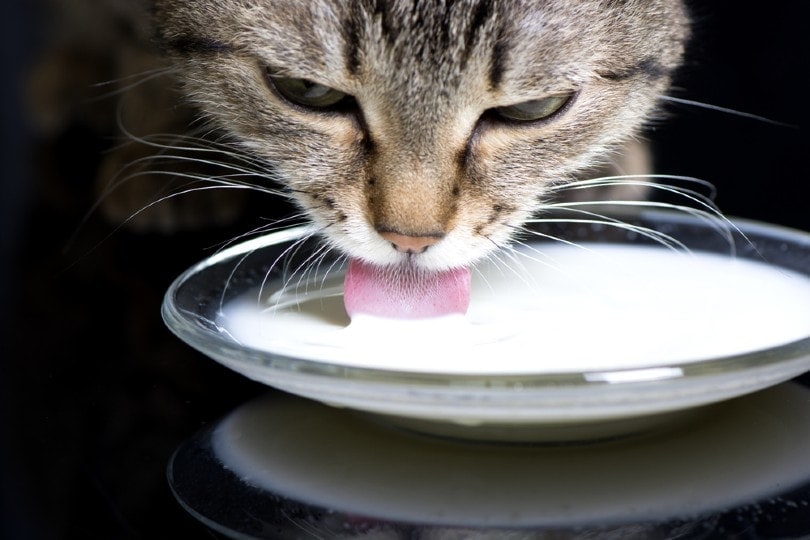
The Drawbacks of Almond Milk for Cats
While almond milk is lower in calories than cow’s milk, it’s still additional calories your cat doesn’t need. Technically, almond milk doesn’t provide your cat with any extra health benefits that they don’t already get from their regular food.
As a general rule, experts believe that cats need about 24 to 35 calories every day for every pound for your cat to maintain a healthy weight. So, a 10-pound cat should have roughly 240 to 350 calories per day, and 1 cup of almond milk can contain 30 to 60 calories.
Many almond milk manufacturers add extra sugar, preservatives, and flavors, which are disadvantages of almond milk for cats. Rarely cats are also allergic to almonds and can experience gastrointestinal upset and itchy skin after consuming the milk.
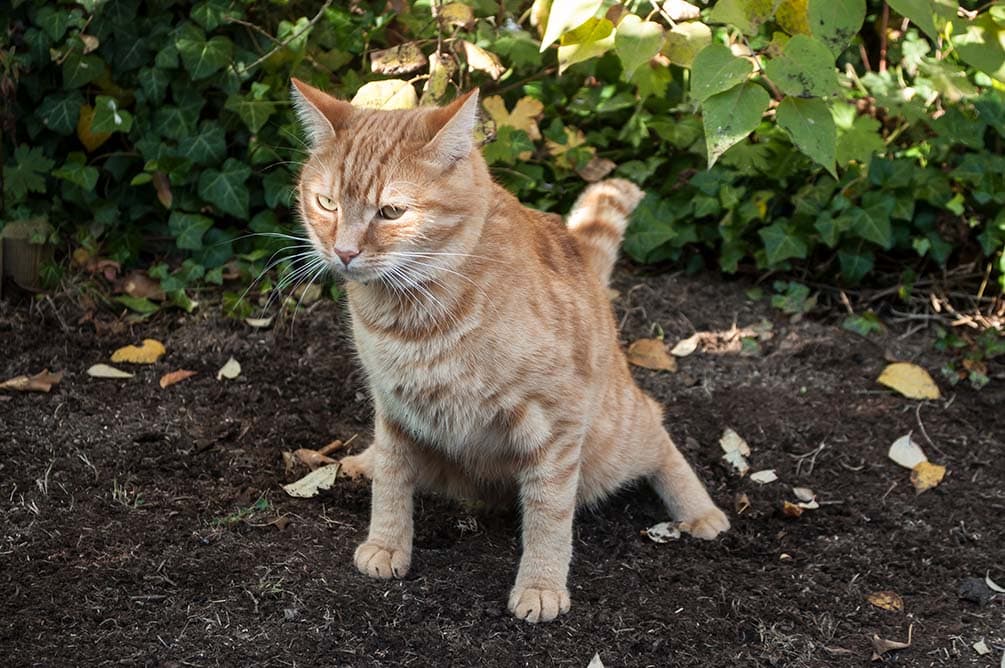
Sustainability of Almond Milk
Beyond the issues with giving your cat almond milk, there are issues with the production of almond milk and its effects on the environment.
Most almonds cultivated for almond milk in the U.S. are in California. Almonds require a large amount of water to create almond milk. To make just one glass of almond milk requires approximately 16 gallons of water!
Additionally, growing almonds put excess pressure on bees and beekeepers. 70% of the commercial honeybee colonies in the U.S. are used to pollinate almond orchards, and the stress of this production is killing the bees. During the winter of 2018 and 2019, the almond pollination process killed 50 billion honeybees.
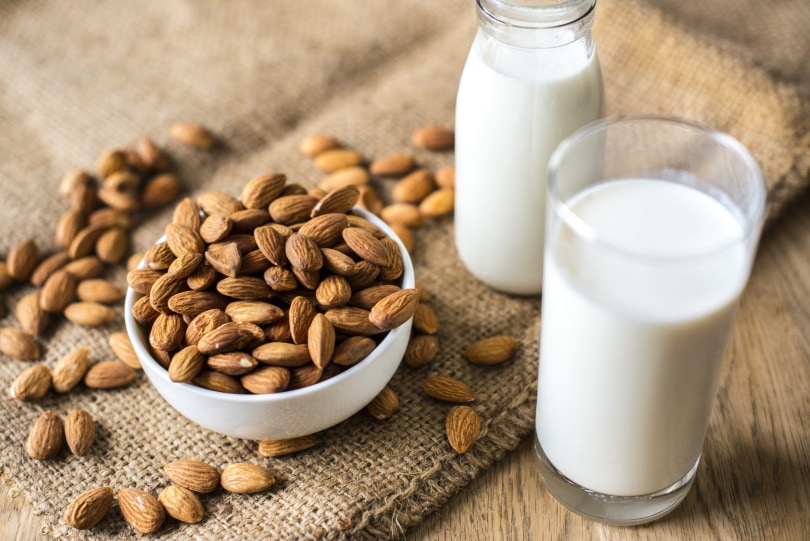
How Much Almond Milk Is Okay?
Almond milk is not necessary for a cat’s daily dietary requirements. But if you’re determined to give your cat some, just consider it an occasional treat, not a part of their daily diet.
You should give your cat just a tablespoon or so of almond milk to start. Keep an eye on your kitty for the next several hours, and as long as your cat seems to be fine, there probably isn’t an allergy present. You should be on the lookout for diarrhea, upset stomach, and bloating otherwise.
If your kitty doesn’t react badly to the almond milk, you can slowly increase the amount. You probably shouldn’t give your cat any more than ¼ cup of almond milk at once, and even then, it should be given as a treat and not every day.
Conclusion
While almond milk isn’t bad for your cat (unless there’s an allergy), it’s still something you shouldn’t go out of your way to give your cat. Cats get all their nutrition and liquid requirements through food and water, so almond milk doesn’t benefit them much in the long run.
Cats also can get an upset stomach or even gain weight with too much almond milk. Speak to your vet if in doubt, and save the almond milk for your enjoyment.
See Also:
- Is Febreze Safe For Cats? Is It Effective For Cleaning?
- Can Cats Drink Oat Milk? Vet-Reviewed Facts & Tips
Featured Image Credit: Nailia Schwarz, Shutterstock







